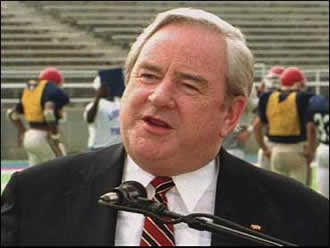
|
|
|
|
|
Class
Prep
|
|
|
|
- Protestant
Apocalypticism and Israel in Christian End-Time Scripts
-

- The readings for today range over a broad swath of "Christian"
apocalyptic thought, from mainstream Protestantism (Moorhead)
to evangelical Protestantism and finally to the radical, anti-Semitic
and anti-NWO fringe (Daniels, Barkun). As you read
these materials, look for the operative apocalyptic script of
the end-time and for the ways it has developed beyond the New
Testament texts we read in our last class.
-
- It is probably best to begin with the "mainstream"
and move to the fringe. Therefore, begin with Moorhead,
and from his encyclopedia article be able to answer the following
questions:
-
-
- What are postmillennialism and premillennialism? How
is postmillennialism associated with the theory of human progress
born in the Enlightenment? How is it associated
with the great revivals of the nineteenth century?
- How was America's role in salvation history perceived among
progressivist millenarians? How did the progressivists
deal with the biblical prophecies of a period of tribulation
or turmoil?
- What social movements were affected by Protestant millennialism,
and how were they affected?
- What specific challenges did the emergence of higher criticism
pose to Protestant readings of Daniel and Revelation? How
did mainstream Protestantism respond, and how was this tied
to an emerging consumerist ethos and to biological evolution?
- For premillennialists, what is at stake in the assertion
that Christ's return will precipitate the millennium? That
is, what social and religious positions do they refute?
-
- Now read the Barkun essay about Politics and Apocalypticism. Barkun
argues that there are currently three styles of millenarian expression,
the traditional, the secular and the improvisational. Know
the characteristics of each. In addition, consider
the following questions:
-
-
- What different adaptations have apocalyptic activists made
since the 1970s? Correlate Baptist minister Jerry
Falwell's infamous remarks
after 9-11 to Barkun's analysis.1
- In secular apocalyptic scenarios, who is the enemy?
- The improvisational forms of millenarian expression include
groups that use "apocalyptic bricolage" and
"stigmatized knowledge." Identify these
terms. In this section of Barkun's essay, you will
read about the Protocols of the Elders of Zion; read
the Daniels reading, pp. 93-107, for excerpts and discussion
of that text. Barkun also discusses Christian Identity
groups, their "scriptures," The Turner Diaries,
and anxieties about the New World Order. Daniels
provides some primary materials on these topics on pp. 108-125.
- How is the NWO a rallying point for traditional, secular
and improvisational millenarians?
-
- Finally, Mark Juergensmeyer offers us a little more background
on the Christian Identity group, whom Barkun classifies as one
of the improvisational millenarian groups. How is a
utopian Israel constructed in these circles? In class,
we will contrast this construction to the role of the State of
Israel in U.S. evangelical Christianity (on the latter, you might
take a look at Donald Wagner's short online piece, "Evangelicals
and Israel: Theological Roots of a Political Alliance,"
Christian Century [4 November 1998] 1020-1026).
-
-
- Assigned Readings
- Primary: Daniels 93-125
- Secondary: Moorhead, "Apocalypticism in Mainstream
Protestantism, 1800 to the Present"; Barkun, "Politics
and Apocalypticism" (both on ERes); Juergensmeyer 30-36
- Optional: Katz and Popkin, "From British Israel
to Christian Identity and Aryan Nation"; Harding, "Imagining
the Last Days: The Politics of Apocalyptic Language"; Shepperson,
"The Comparative Study of Millenarian Movements (ERes)
-
-
- Further Reading
-
- See also the section of the Course Bibliography on Jerusalem
and Israel in Contemporary Jewish, Christian and Muslim Eschatologies.
-
-
- Links
-
-
-
- Sources
- Photograph: AP Photo, Bob Simon, "Falwell Brands Mohammed
a 'Terrorist,'" CBSNews.com, 60 Minutes, 6 October
2002, online, http://www.cbsnews.com/
stories/ 2002/10/03/60minutes/main524268.shtml, 27 October 2002.
-
1 "Transcript
of Pat Robertson's Interview with Jerry Falwell, 13 September 2001,"
People for the American Way, Online, http://www.pfaw.org/issues/right/robertson_falwell.html,
19 August 2002 For Falwell's and Robertson's retractions,
see Pat Robertson, "Pat Robertson Addresses Comments Made by
Jerry Falwell, PatRobertson.com, 17 September 2001, Online,
http://www.patrobertson.com/
PressReleases/falwell.as, 18 August 2002.
|
|
|
|
|
